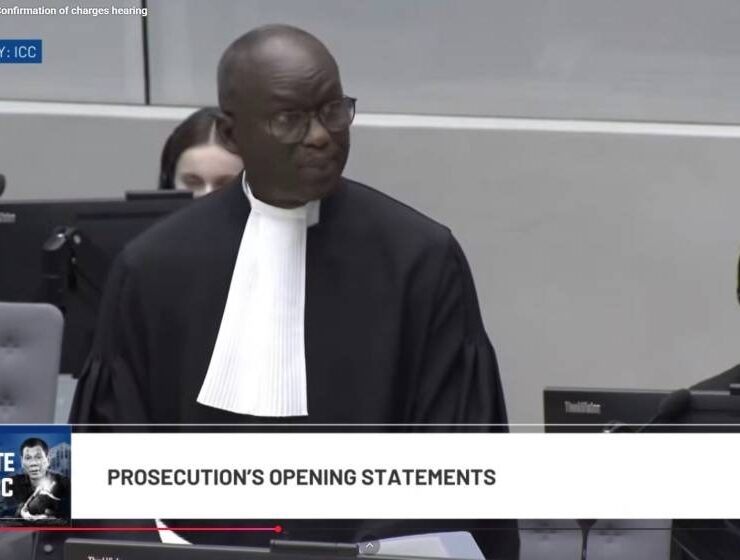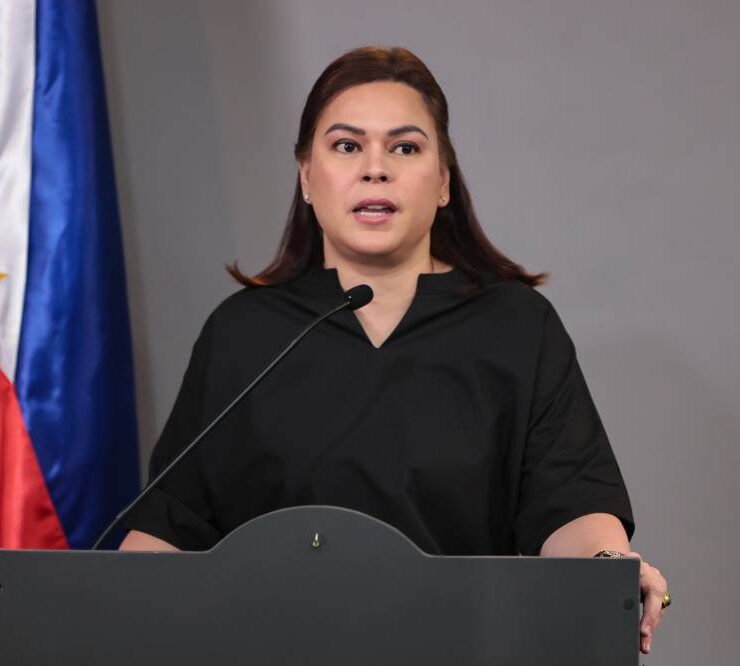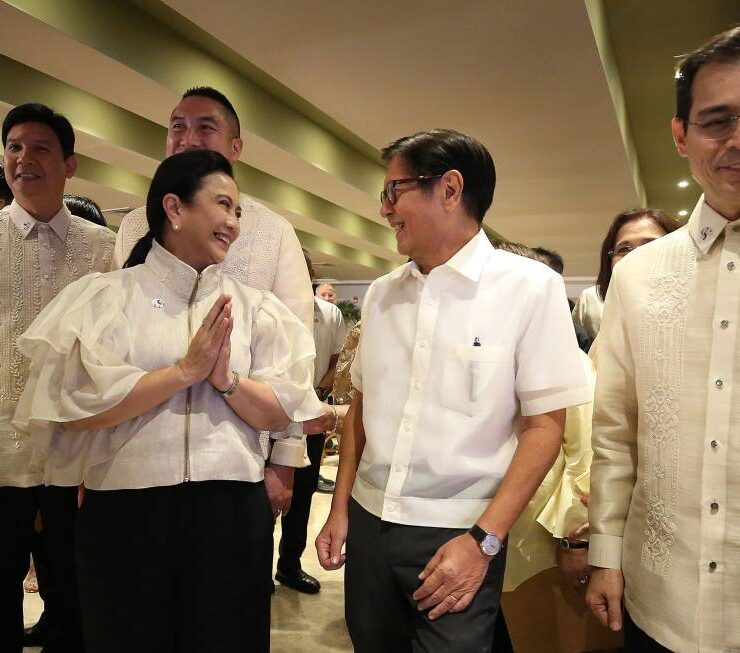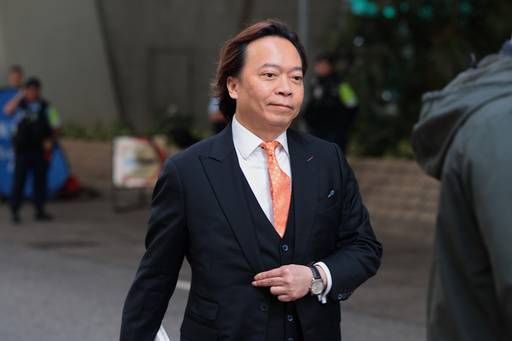Palace: People see who’s ‘playing around’ with rules
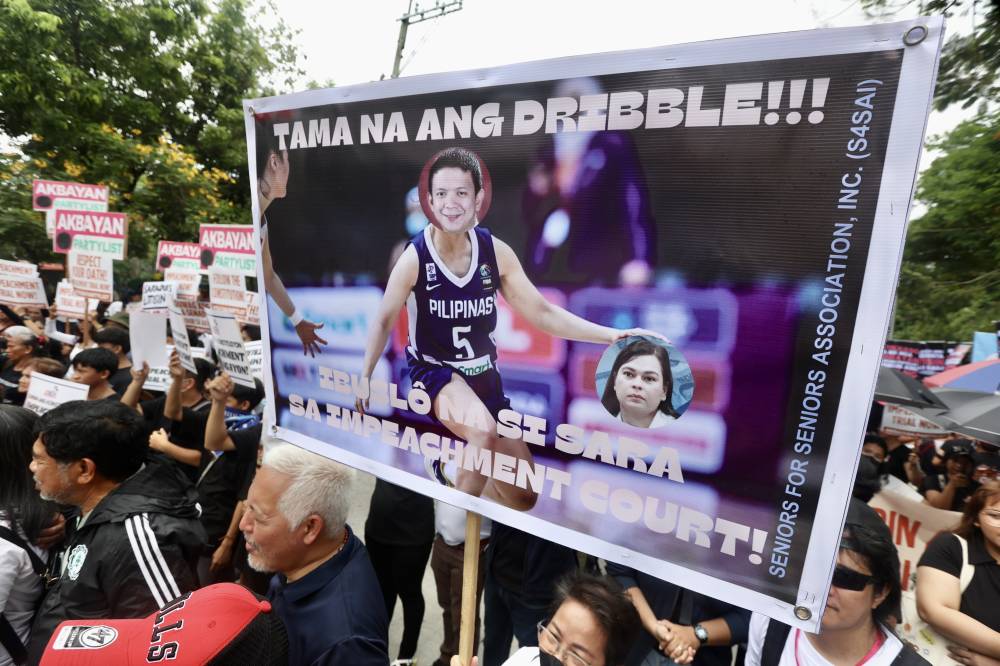
Malacañang on Wednesday warned public officials that they should adhere to legal procedure, in apparent reference to the Senate’s first move as an impeachment court to return the case filed against Vice President Sara Duterte to the House of Representatives.
Presidential Communications Office Undersecretary and Palace press officer Claire Castro said public officials “should not play around with the procedure. They should follow procedure and rule of law, for the people’s interests.”
“The President is not part of the debates in the Senate. The people can clearly see who is following … or who is playing around with the procedure to avoid or push through with the impeachment trial,” Castro said during a press briefing on Wednesday.
She made the statement when asked to comment on the possibility of President Marcos suffering political ramifications if the impeachment complaint against his ally-turned-adversary is dismissed.
House seeks clarification
At the House, the prosecution team formed for Duterte’s impeachment trial is set to seek clarification on the Senate’s order remanding the case to the lower chamber, even as it maintains that the case was still “very much alive” and not yet “functionally dismissed.”
During the last plenary session on Wednesday, the lower chamber adopted House Resolution No. 2346 certifying that the impeachment case initiated by 215 House lawmakers last Feb. 5 against Vice President Sara Duterte complied with Article XI of the 1987 Constitution.
However, the certification is simply for the purposes of House records and not yet to be submitted to the Senate.
It also approved a motion to defer acceptance of the articles of impeachment until the Senate has responded to the clarificatory questions submitted by the House prosecution in line with its order to return the case “without dismissing or terminating” the case.
‘Dangerous precedent’
The Senate late Tuesday approved 18-5 a motion to seek a House certification that the complaint followed the 1987 Constitution and that it was willing to try the Vice President under the 20th Congress.
In a message to the Inquirer, Iloilo Rep. Lorenz Defensor said the Senate “made a dangerous precedent and a clear breach of public trust.”
“To remand is not an option. It’s either acquit or convict after trial,” he said.
Castro, meanwhile, reiterated that President Marcos—who has repeatedly said he is not in favor of removing Duterte via impeachment—will not meddle in the Senate’s conduct of the impeachment trial.
She added that Mr. Marcos firmly believes that all government officials and employees should be transparent and accountable for their actions in the performance of their duties.
“As far as the President is concerned, generally there should be transparency and accountability among all public servants. Not just in this impeachment trial. So, when the President says the process should be followed, then we should abide by the law and the 1987 Constitution,” Castro said.
No constitutional basis
Batangas Rep. Gerville Luistro explained that their decision to seek clarification first from the Senate is not disobedience.
“What we want is to seek guidance and enlightenment first so we can properly comply with the order of the impeachment court,” she said.
This was echoed by Manila Rep. Joel Chua, chair of the House committee on good government whose findings formed the basis of the impeachment complaint endorsed by 215 lawmakers last Feb. 5.
“With respect to other legal remedies, we have not yet decided on anything until such time that we receive further clarification,” Chua said.
Luistro said if the clarification is “in accordance with the Constitution and the Senate rules of impeachment and other existing laws,” they would comply with the order “since we are morally bound to follow the orders of the impeachment court.”
The prosecutors, however, said they found the Senate motion, initiated by the so-called “Duterte bloc” in the Senate, unconstitutional and lacks legal basis.
“It is of my personal opinion that this is unconstitutional simply because this is not part of the scope of powers of the Senate, and we would normally expect such motions to be made by the defense,” said Chua.
This view is shared by other House lawmakers and legal experts, who maintain that the Senate’s power is to try and decide all impeachment cases and that “remanding” a complaint has no basis both in the Constitution and in the Senate rules of impeachment.
Complaint followed process
“The Senate as an impeachment court has just lit the Constitution aflame,” said incoming Mamamayang Liberal Rep. Leila de Lima, who was tapped to join the 11-member prosecution team in the 20th Congress. “They didn’t even wait for the impeached official herself to move for the dismissal of the case. There is clearly no due process … [the senator-judges] made the motions themselves and ruled on their own motions.”
Incoming Akbayan Rep. Chel Diokno, who will also be part of the prosecution team, said it was clear that the Senate “abandoned the Constitution and that there is really a clear and grave abuse of discretion.”
‘Ping-pong’ game
Under Article 11 of the Constitution, the House has the exclusive power to initiate all cases of impeachment, while the Senate has the sole power to try and decide such cases.
“Allowing a remand opens the door to a ping-pong (game) between two chambers that will allow them to pass off the difficult political questions in impeachment to the other branch if it’s not convenient to answer them,” said Paolo Tamase, an assistant professor of the University of the Philippines College of Law..
The prosecutors have remained firm that the filing of the fourth impeachment complaint—a consolidated version of the first three complaints filed by civil society groups in December 2024—followed the Constitution.
Corona trial reference
Luistro cited a resolution during the impeachment trial of former Chief Justice Renato Corona that states that impeachment complaints enjoy presumption of legality “and cannot be questioned anymore unless there is strong evidence to the contrary” as long as they were verified and signed by one-third of the House and did not violate the one-year bar rule.
They’re also seeking clarity on the second stipulation in the Senate motion: for the House to certify that it is willing to pursue the trial in the 20th Congress.
“(Senate President) Francis Escudero has been saying that they cannot bind the 20th Congress Senate, yet in their orders, they’re making us comment for the 20th Congress. It’s very impossible to comply with such an order … how can we move forward if it is a condition of moving forward?” asked Bukidnon Rep. Keith Flores.
















